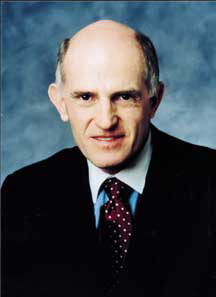Kansas City School District
by Arthur Benson

Any fix the Kansas City School District needs depends on what is broken. Undoubtedly teaching and learning are broken. The State of Missouri prescribed fundamental changes and told Missouri districts that in the late-1990s it would begin its Missouri Assessment Plan ("MAP") tests, based on the new teaching approach. The KCMSD adopted plans for causing those changes in January 1999, along with an accountability plan to make those changes real. Judge Whipple even admonished the school board in July 1999 to expeditiously implement the reforms.
Unfortunately, those reforms have not been adopted system-wide. Why not? The answer to that question sheds substantial light on the question of school board governance. Despite claims of Board interference, former Superintendent Demps never offered a verifiable example. In fact, Demps' contract allowed him the full power to hire and remove employees "in consultation" with the school board. Last fall, Demps removed Deputy Superintendent Hines, the district's chief instructional officer, without consulting the Board. He would not even acknowledge the terms of separation, which became public only when the Star forced his hand. The documents revealed that Demps has abused his spending limit of $50,000. The board then asked for an explanation for Hines' departure and Demps refused and still refuses, a violation of the consultation requirement of his contract. Although the board took no action, its xrelationship with Demps soured.
As the district prepared for hearings in federal court earlier this year, the board asked to be advised of its various strategic options and reminded Demps that major policy decisions required its approval. Demps refused and ordered the district's attorneys not to brief board members on the major options.
In response, the board voted to reduce Demps' spending authority to $25,000 and to require the attorneys to brief the board on legal matters. Demps immediately complained in a letter to federal court's monitor, a complaint that went nowhere.
When the State cited the worst schools in the KCMSD, Demps was quoted as saying that nothing had changed in the district's academic performance. The board asked him what he believed he had accomplished and what his plans were for improving academic performance and regaining accreditation. He again refused to answer. A few days later he told the state that he believed it should take over the school district, an act of disloyalty that would have gotten any corporate CEO fired. The board, however, continued to defer to Demps.
In this atmosphere, however, the board/superintendent contract renewal negotiations went nowhere. During a mediation effort to improve communications, the board asked Demps to give specifics about board interference, board patronage efforts, the discharge of Hines and similar questions. He refused and dropped out of the mediation. The board then voted to suspend him and "non-renewed" his contract.
The board had no other choice. Demps had proved to be ineffectual in changing the culture of failure. In the fall of 1999 Demps said he would implement the court-approved accountability plan by year's end. In a January 2000 deposition, he said it would be finished by June 2000. In May 2001, the accountability plan is still not complete and its implementation has not even begun. This single most important educational initiative in the district went nowhere under Demps. What the state needs to do is not seize the district but assist with educational reform. To date, there have been only token efforts by Missouri to reform teaching and learning. A new school board, a state-appointed school board, or a dissolution of the school district will not change what is going on in each district classroom.
Students must learn how to construct their own understanding of knowledge, how to deepen it, and how to apply it to new situations. New teaching methods are needed and new building leadership is required to foster and support teachers. The KCMSD needs seventy radical change agents, one to lead each of its schools. Replacing the school board will not accomplish that. Kansas City surely has the resources and the money it will take to recruit and compensate the principals we need.